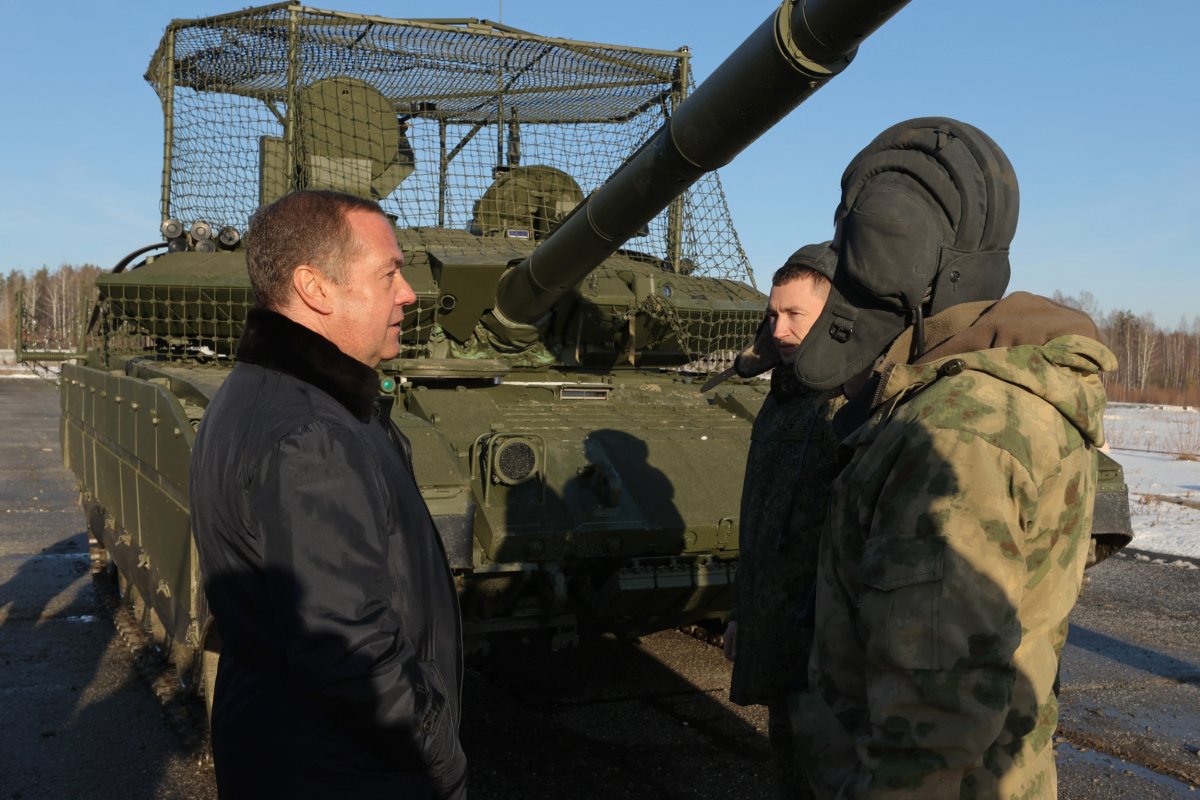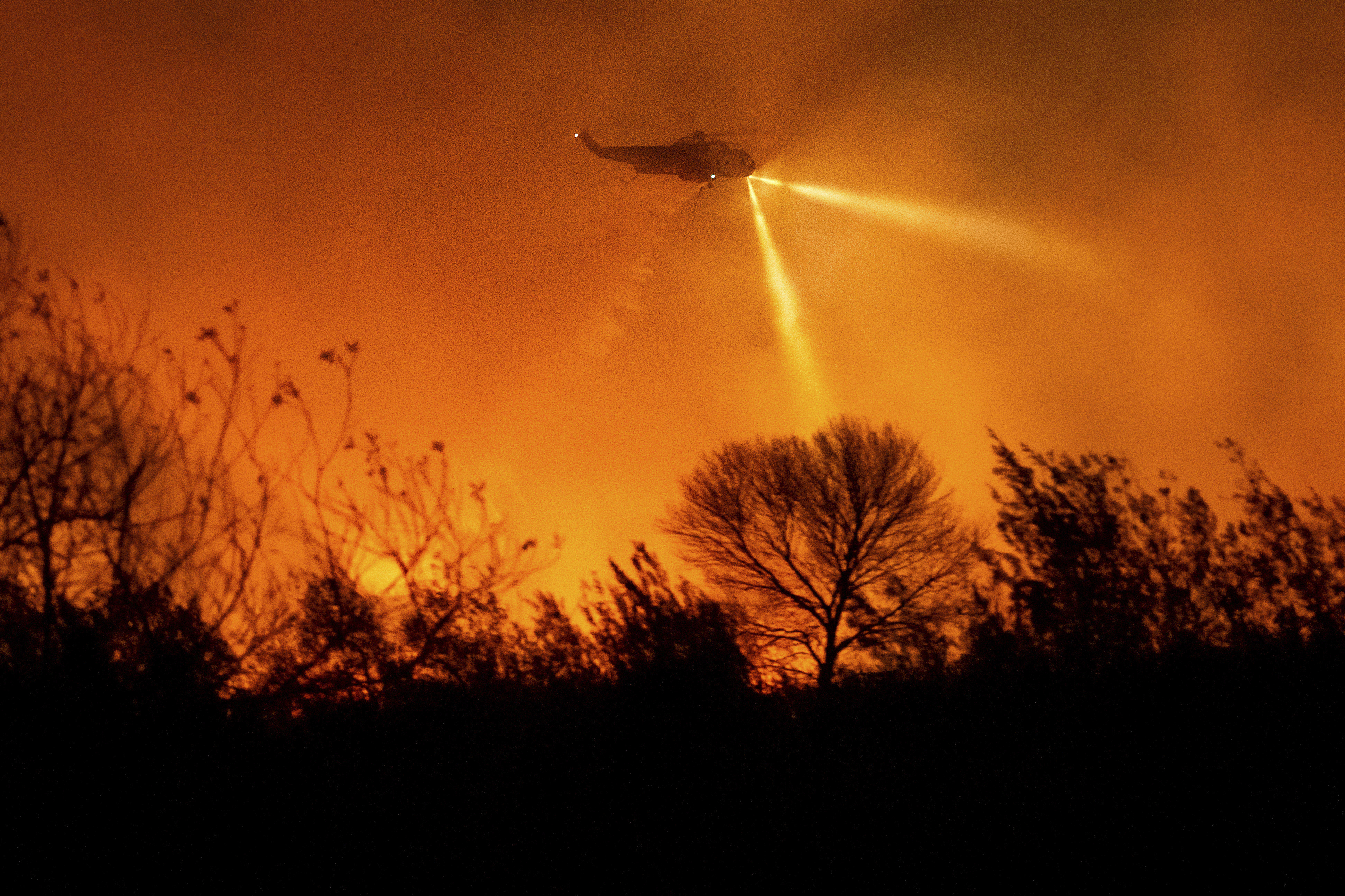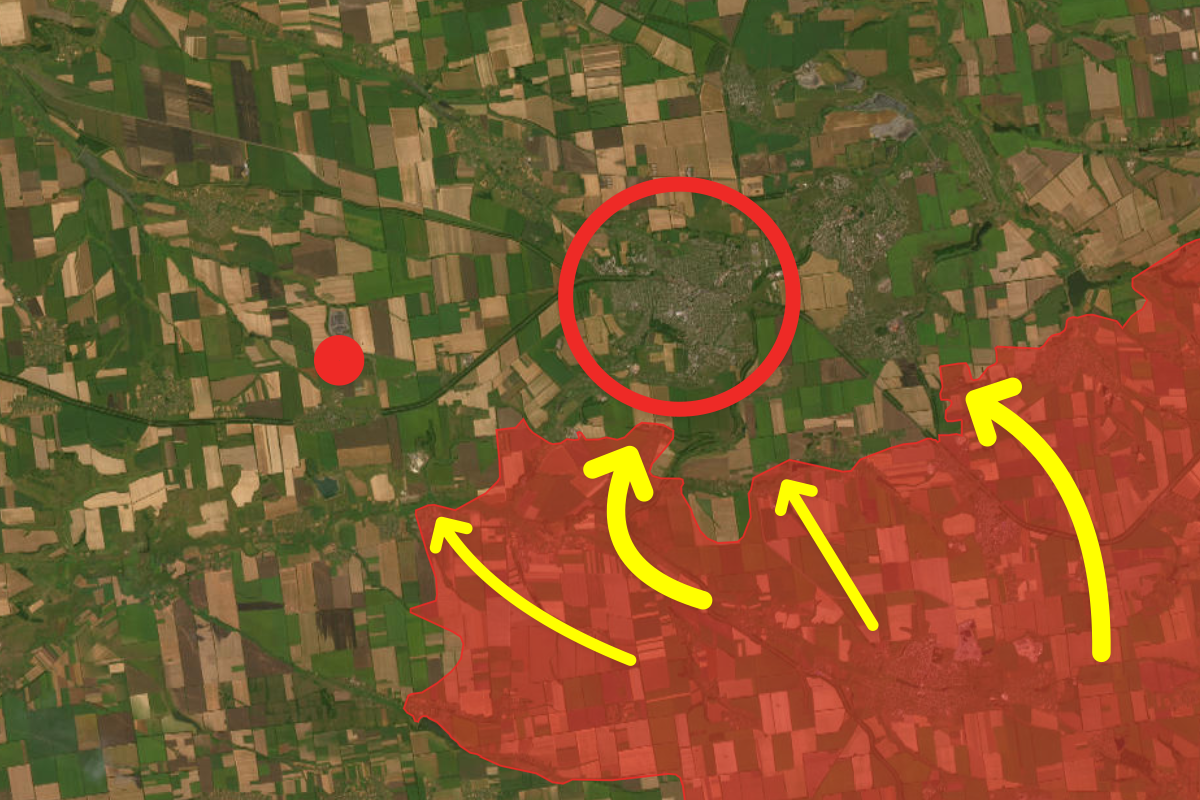Russia is financing its military spending through a shadow plan that poses a "seismically disruptive" threat to an economy already buffeted by high inflation and interest rates, according to an analysis.
Craig Kennedy, a former Morgan Stanley investment banker, has described how the Russian state requires banks to issue preferential loans to military firms that are making President Vladimir Putin's war effort in Ukraine possible.
That gives the Russian economy a better bill of health, misleading experts into thinking that Putin can continue with record military spending without any adverse effects to the country's finances, according to Kennedy.
Newsweek has contacted by email the Russian Finance Ministry, Russia's central bank and Kennedy for comment.

Why It Matters
Despite facing tough sanctions, Russian state media said there is GDP growth forecast of 2.5 percent in 2025, but it comes amid a high inflation rate of 8.9 percent, which has been stoked by a worker shortage and a record key interest rate.
Putin in December approved a record-breaking defense budget, setting aside 32.5 percent of the government's total spending for 2025, worth $126 billion.
Kennedy's findings suggest that the Russian economy could face corporate and banking collapse with its continued military spending, suggesting that Western support for Kyiv may be able to surpass Moscow's ability to maintain a war of attrition.
What To Know
Kennedy said Russia has followed a two-track strategy to fund its war via its defense budget expenditures as well as an off-budget plan of similar size enabled by a law enacted on February 25, 2022, which compels Russian banks to give preferential loans to military-related businesses.
In that period, Russia has faced a 71 percent expansion in corporate debt worth $415 billion or 19.4 percent of GDP—higher than oil and gas revenues and defense budget expenditures, Kennedy said in his Navigating Russia newsletter.
That means Russia's total war costs "far exceed" what official budget expenditures would suggest.
This off-budget defense funding was harder to sustain during the second half of 2024, spiking inflation and pushing up interest rates for "real" economy borrowers to above 21 percent, "creating the preconditions for a systemic credit crisis," Kennedy said.
He said preferential bank loans worth up to $250 billion had been given to defense contractors, many of which had poor credit.
This is driving up inflation and interest rate hikes and risks triggering a systemic crisis and the longer Moscow delays ending the war, the closer it will move toward corporate and banking collapses that the Russian government would be forced to cover.
In reporting Kennedy's findings, the Financial Times said that Putin "sits on a ticking financial time bomb of his own making" and that Kyiv's allies must deny Moscow greater access to external funds.
"Putin has commandeered the Russian banking system, with banks required to lend to companies designated by the government at chosen, preferential terms."
What People Are Saying
Craig Kennedy, former investment banker on Substack: "For Moscow, credit event risk—with its seismically disruptive potential—will be of far more immediate concern than slow-burn risks like declining GDP."
Vasily Astrov, senior economist at the Vienna Institute for International Economic Studies told Newsweek: "War spending is a clear fiscal liability for the state, whereas preferential credit is not. The latter would have entailed extra fiscal spending, only if the difference between 'market' and 'preferential' interest rates had been covered from the state pocket."
What Happens Next
Russia's economy is likely to continue facing turbulence in 2025. Economist Igor Lipsits told independent outlet Novaya Europe that Russian Central Bank's measures to combat inflation, like hiking the key interest rate, will mean fewer goods and services, higher retail prices, and a fall in real incomes for Russians.
Russia's Central Bank's key interest rate is at 21 percent, which, while at its highest since the start of the war, was not raised as expected in December.
Astrov said if rates stayed at manageable levels and the central bank's decision to put its tightening policy on hold points in that direction, "I don't think the risks to the financial stability are too high in the foreseeable future."




















 English (US) ·
English (US) ·